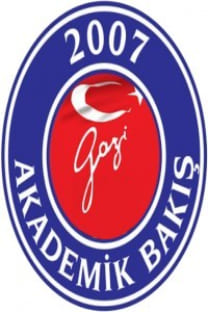Turkey’s New Foreign Policy Towards The Middle East And The Perceptions In Syria And Lebanon
Orta Doğu’daki gelişmeler güvenlikten ekonomiye Türkiye’nin çıkarlarını doğrudan etkilemektedir. Bununla beraber Türkiye Soğuk Savaş döneminde Orta Doğu’daki gelişmelere doğrudan ve etkili bir şekilde müdahil olmamıştır. Soğuk Savaş sonrasında oluşan yeni siyasi ortam ve özellikle de 2000’li yıllar, Türkiye’nin farklı politikalar izlemesine olanak sağlamış ve/veya karar vericileri bu konuda cesaretlendirmiştir. Yeni dönemde Türkiye bir yandan Batı ve dünyanın diğer bölgeleriyle ilişkilerini sürdürüp geliştirirken, diğer yandan Orta Doğu ülkeleriyle hemen hemen her seviyede karşılıklı saygıya, toprak bütünlüğüne ve güvene dayalı yeni bir ilişki modeli oluşturmaya çalışmıştır. Bu çalışma, Türkiye’nin yeni Orta Doğu politikası ve bu politikanın Suriye ve Lübnan’daki algılamaları üzerinde durmaktadır. Bu algılamalardan hareketle makale, Türkiye’nin bölgeye yönelik yeni diplomatik girişimlerinin süreceğini ve bölgede istikrar arayışı sürdükçe, bu girişimlerin bütün kesimler tarafından takdir edileceğini iddia etmektedir.
Anahtar Kelimeler:
Türkiye’nin Orta Doğu Politikası, Türk Dış Politikası, Türkiye-Suriye İlişkileri, Türkiye-Lübnan İlişkileri, Orta Doğu’daki Türkiye Algısı
Türkiye'nin Yeni Ortadoğu Politikası ve Suriye ile Lübnan'daki Algılamalar
The issues in the Middle East directly affect Turkey’s interests from security to economy. However, during the Cold War, Turkey did not involve directly and influentially to the Middle Eastern affairs. The political atmosphere arose after the Cold War, especially in the beginning 2000s, gave some opportunity and/or encouraged Turkish decision makers to pursue a new policy. Turkey as it develops and continues its relations with the West and the rest of the World, tried to set a new model of relations depend on mutual respect, recognition of territorial integrity and constructing trust building relations with the regional countries in every level. This article focuses on Turkish new foreign policy toward the Middle East and reflects the perceptions in Syria and Lebanon. From these perceptions, the article claims that Turkish new diplomatic initiatives would likely to continue and will be appreciated by all sides as long as the search for stability in the region prevails.
Keywords:
Turkey’s Middle East Policy, Turkish Foreign Policy, Turkish-Syrian Relations, Turkey-Lebanese Relations, Perception of Turkey in the Middle East,
___
- AL TAQI Samir, Interview, Damascus, 08/22/2008.
- AL-ZAYDI Mshari, “The Return of the Ottoman Empire”, Asharq Alawsat, 02/05/2009, http://www.aawsat.com/english/news.asp?section=2&id=15618, (retrieved 02/08/2009).
- AMMURA Abdel Fatah, Syrian Ministry of Foreign Affairs, Interview, Damascus, /19/2008.
- ASHARQ AL AWSAT, “Turkish Drama Series Gain Popularity in Arab World”, http://www. asharq-e.com/news.asp?section=7&id=12568, (retrieved 04/27/2006).
- BENGIO Ofra, Interview, Tel Aviv-Israel, 06/11/2009.
- BEYATLI Adil, Head of TPIC Damascus Branch Office, Interview, Village of Khaldur, /23/2008.
- DAVUTOĞLU Ahmet, “Turkey Strives for a Better Common Future in the Middle East”, Daily Star, 07/31/2009. http://www.champress.net/index.php?q=en/Article/view/44473, (retrieved 09/16/2009). http://www.champress.net/index.php?q=en/Article/view/44490, (retrieved 09/16/2009).
- Quoted in Semih İdiz, “FM Davutoğlu Should Choose His Words Carefully”, Hurriyet Daily News, /10/2009. http://www.dtm.gov.tr, (retrieved 07/15/2009). http://www.trt.net.tr/trtinternational/en/newsDetail.aspx?HaberKodu=16ba126f-8341- e-9d3a-27480f62eacc, (retrieved 07/19/2009). http://www.ynetnews.com/articles/0,7340,L-3707314,00.html, (retrieved 05/30/2009).
- HURRIYET DAİLY NEWS, “High-Level Turkish-Syrian Meeting Kicks off in Latakia”, http://www.hurriyetdailynews.com/n.php?n=high-level-turkish-syrian-meeting-kicks- off-in-latakia-2010-10-03, (retrieved 10/10/2010).
- HURRIYET, “Secret Solution to Hatay”, 01/10/2005.
- İDİZ Semih, “FM Davutoğlu Should Choose His Words Carefully”, Hurriyet Daily News, /10/2009.
- KABALAN Mervan, Interview, Damascus University, 08/24/2008.
- KHOURY Ernest, Interview, Beirut, 08/28/2009.
- KILIÇ Serdar, Turkish Ambassador in Beirut, Interview, Beirut, 08/26/2008.
- LAPIDOT-FIRILLA Anat, Interview, Jerusalem-Israel, 06/10/2009
- LARRABEE Stephen, “Turkey Rediscovers the Middle East”, Foreign Affairs, July/August LEBANON DAILY STAR,” Turkish Soaps Revive Arab Interest in the Capital of the Ot- tomans”, http://www.dailystar.com.lb/article.asp?edition_id=10&categ_id=4& article_ id=105477, (retrieved 08/22/2009).
- MOUBAYID Sami, “Turkish-Syrian Relations: The Erdoğan Legacy”, SETA Policy Brief, No. , October 2008.
- MOUSSAOUI Rana, ‘Subversive’ Turkish TV Series Takes Arab World by Storm”, http:// www.france24.com/en/20080825-subversive-turkish-tv-series-takes-arab-world-storm, (retrieved 09/14/2008).
- MROUE Jamil K., Interview, Beirut, 08/27/2008.
- MUFTI Malik, “Turkish-Syrian Rapprochement: Causes and Consequences”, Policy Watch, No. 630, The Washington Institute for Near East Policy, June 21, 2002.
- NTVMSNBC, “TPAO Suriye’de Petrol Arayacak”, http://www.ntvmsnbc.com/ id/25137670, (retrieved 10/07/2010).
- SYRIAN MINISTRY OF TOURISM, http://www.syriatourism.org/index.php? newlang=eng, (retrieved 08/14/2009)
- TBMM, http://www.tbmm.gov.tr/hukumetler/hukumetler.htm, (retrieved 07/15/2009).
- TISDALL Simon, “Turkey’s Decisive Role”, The Guardian, January 19, 2009.
- TRABOULSI, Fawwaz A History of Modern Lebanon, London: Pluto Press, 2007.
- TURKISH MINISTRY OF FOREIGN AFFAIRS, http://www.mfa.gov.tr/synopsis-of-the- turkish-foreign-policy.en.mfa, (retrieved 09/02/2009).
- ISSN: 1307-9778
- Yayın Aralığı: Yılda 2 Sayı
- Başlangıç: 2007
- Yayıncı: Hale Şıvgın
Sayıdaki Diğer Makaleler
18. Yüzyılın İlk Yarısında Rusya’nın Kafkasya’da İşgalcilik Politikası
Hüseyin Cahit Yalçın’ın Kaleminden Şarki Anadolu Islahatı (1913 – 1914)
Turkey’s New Foreign Policy Towards The Middle East And The Perceptions In Syria And Lebanon
Kanûnî’nin Para Vakfı Yasağını Kaldıran 1548 Tarihli “Hükm-i Şerîf”inin Yeni Bir Nüshası
Dünyada ve Türkiye’de Think Tank Kuruluşları: Karşılaştırmalı Bir Analiz
Türkiye'nin Orta Asya ve Kafkasya'daki bölgesel politikasında enerji güvenliği
İlkçağ Anadolu Efsanelerinin “En Güzel i”: Troyalı Helena
Birinci Dünya Savaşı’nda Irak Cephesinde Osmanlı Devleti ile İngiltere Arasındaki Çarpışmalar (1915)
Rus Dış Politikasında Batı Karşıtlığının Düşünsel ve Tarihsel Gelişimi
